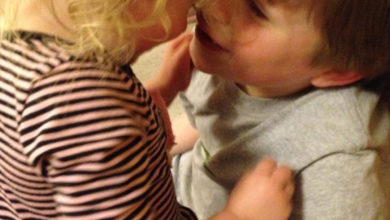Former Bullies, Take Note

A while ago, I posted a Facebook status regarding one of my childhood tormentors. She had, upon encountering some of my relatives, said that she remembered me and asked that they say hi to me from her. I had a little vent but didn’t say that I hated her, believed her to be a bad person, or anything like that.
Regardless, I had unwittingly put out a former bully bat-signal. People I knew claimed that I needed to forgive her, that she could have grown up to be a perfectly wonderful young woman, that I ought to give her a chance, and so on. The justifications given were an exercise in typical bully apologetics: Kids are cruel. It was so long ago. Maybe she was trying to apologize to you. Why didn’t you just ignore her? Someone was probably hurting her, too. I doubt you were never mean to another kid.
I couldn’t believe that people I knew (and who, presumably, liked me) were trying to get me to be sympathetic towards a bully instead of being sympathetic towards me.
I’ve been thinking about it ever since. My personal resentment and hurt aside, the reactions of the former bullies were unhelpful at best. If the end goal is to prevent more bullying and promote more humanization on all sides, here are my suggestions for those who have come to realize that they were bullies.
What Not to Do
- Re-victimize/traumatize the people you know who were tormented by people like you, especially if they are expressing their pain. Insisting that the victims be far more loving towards their bullies than the bullies ever were to them is immeasurably hurtful.
- Project your own defensiveness. You feel bad but you also want others to know that you aren’t overall a bad person despite having done what you did. Demanding empathy of people, however, is not going to make them feel better about you or their experiences.
- Make excuses and justifications for bullying behavior. Those of us that were more among the victimized than the victimizers as children have heard it all before, trust me. It didn’t help when we cried about it as children and it doesn’t heal any of the lingering pain we might feel as adults.

What To Do
- Make what you say about your friend, not about you, by acknowledging their pain and then, if it’s helpful, relaying your perspective in a way that is constructive. For example:
I’m so sorry you had to go through that. I used to be a kid like your bully; if it’s any comfort, I didn’t have any idea what I was doing and wish I could take it all back.
- Focus on preventing bullying. As someone who used to bully, you are better equipped than any victim to recognize bullies and potential bullies and stop them in their tracks. Your remorse can serve as a cautionary tale.
- If you really would like to make amends, in lieu of trying to get your current friends who were victims of bullies to feel sympathetic towards their past tormentors, you could find your victims if you can and apologize sincerely to them. Again, be sure to make it about them, not you. For example:
I apologize if this is a trigger to or intrusion on you, but I wanted to admit that I once was a shitty person who did something terrible to you. You don’t have to forgive me, reply to me, or even interact at all with me ever again, just know that I sincerely regret my senseless meanness and wish you all the best.
I am saying this as someone who has issued such an apology not once, not twice, not three, but four separate times, wholly unsolicited. That’s not to say that I’m a saint. Au contraire, it just goes to show that even those who experienced more victimizing than bullying are nonetheless capable of being, on occasion, bullies, or at least exhibiting bullying behavior. We are also capable of realizing that “forgiveness” for past behavior, whether solicited indirectly through current friends or directly through past victims, is not something for which a bully, no matter how reformed, has the right to ask.
After all, don’t childhood bullies do enough harm as it is without growing up to pressuring the bullied into empathizing and absolving the past behavior?





To hell with bullies of all ages. None of them have the right to speak to their victims again, either to apologize or for any other reason. They all need to just STFU and maybe go jump off a goddamn bridge.
Based on what she’s written here, especially about having made apologies for behavior that she herself has committed in the past, I’m not sure Heina would agree with you. My understanding of her advice is that if former do wish to express remorse, that’s all they should expect to be able to do. A genuine apology makes no demands in return, and someone who expects empathy from a former victim/target does not yet have a full appreciation of the harm they or the bully did to that person.
Agreed, Anne. I was definitely more of a victim than a bully, but I did engage in bullying behavior on a few occasions. Most people are some of both.
When I was in college, I ended up working with a guy who bullied me in junior high. As soon as he recognized me he did precisely what you suggest in #3. I really did appreciate it.
I, for one, want no contact with those who bullied in my past, and for better or worse, I would judge any attempt to apologize (outside of a context where we were forced to interact) as a self-serving gesture, no matter how sincere. I am that bitter about some people in my past. I do not wish them harm, but I would greet news of their misfortune with no sympathy.
A few months ago, I got a Facebook friend request from a guy who tormented me back in 7th and 8th grade. And I mean the physical kind of torment – the kind that leaves marks. I still have a tiny graphite tattoo on my thigh from when he stabbed me with a pencil a decade and a half ago.
I understand that he’s grown up. I see that some of my old friends from those days talk to him regularly on Facebook. I felt a little bit conflicted about whether or not I should accept the request or not; that it would be immature on my part if I were to reject what seems to be a friendly overture simply because he made my life a living hell all that time ago.
But in the end, I decided to ignore the request. Maybe he is a better person now, and if he is, he’ll understand that I am quite content never to have to see or hear from him again.
You aren’t obligated to be friends with anyone, and if he is a better person, he won’t want to hurt you by pressing the acquaintance.
I don’t know if these people change that much in general. Surely some change but most are still as evil or even worse. They just learnt to behave because they play the adults and it’s not culturally accepted that adults bully other people but if it was… pretty sure most of them would still be bullies. I never bullied anyone myself, never saw the point of it.